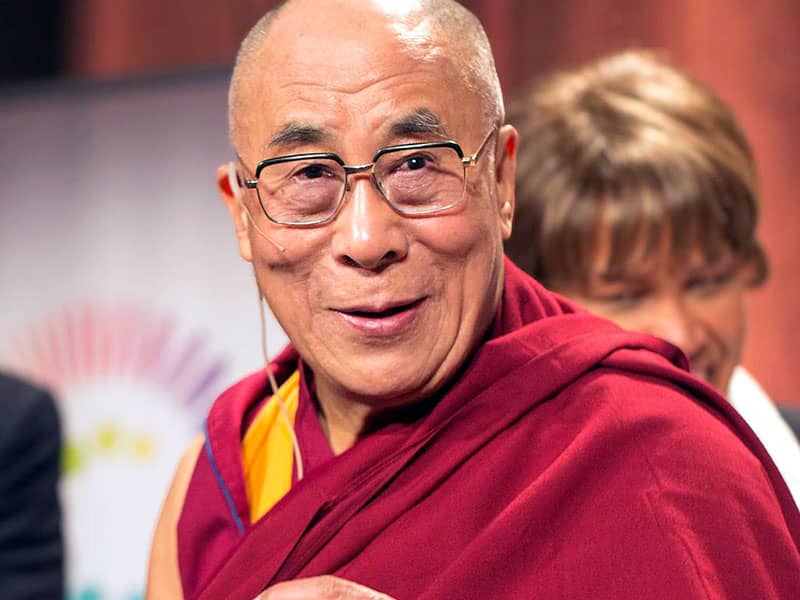His books include "Seeking the Heart of Wisdom," "Teachings of the Buddha," and the spiritual classic "A Path With Heart." This month, Bantam Books published his latest, "After the Ecstasy, the Laundry: How the Heart Grows Wise on the Spiritual Path." Kornfield spoke with Beliefnet's Buddhism producer, Mary Talbot.
In "After the Ecstasy, the Laundry," you interview scores of serious contemplative practitioners--Buddhists, Christians, Jews, Hindus, and Sufis--who have had conflicts integrating a spiritual path with the challenges of daily living. Is this a problem particular to Western practitioners?
This book is really an attempt to give voice to the spiritual experiences of committed Westerners during the last 20 or 30 or even 40 years. What people have found is that there are wonderful awakenings, mystical experiences, and profound understandings that occur in the course of practice, but these need to be integrated into everyday life or they fade. That integration is how the spiritual path matures for individuals. The generation that came to Eastern spirituality in the 1960s and 1970s was very idealistic. We thought that satori, or enlightenment, would change everything. But there's no enlightened retirement. After the ecstasy, there's still your family. You still have to do the laundry.
So what's the solution?
But Westerners, more than most Asians, are prone to feelings of fear, self-hatred, and unworthiness. In this book, I talk about contemplative spiritual practice that's based on the great heart of compassion and mercy. The practice invites the heart to open, just as water, fertilizer, and careful tending invite the flowering of plants in garden. The bottom line, though, is that there is no spiritual bypass: You can't make an end-run around old emotional wounds or your history or family.
Is emotional work, then, the key to integrating spiritual awakening with regular life?
In can be included in your spiritual life and combined with the cultivation of compassion and wakefulness. But part of spiritual and emotional maturity is recognizing that it's not like you're going to try to fix yourself and become a different person. You remain the same person, but you become awakened.
Well, they're all called skillful means. The amount of compassion and mindfulness you can bring to yourself determines how well you can heal your emotional life. There are hundreds of skillful means [in the Buddhist traditions] to help with this, from meditation to the precepts to prayers, to telling your problems to an elder, to rituals. In my experience, psychotherapy at its best is like dual meditation-it's like a container in which you can be compassionate and mindful toward yourself.
One of the remarkable aspects of "After the Ecstasy" is the similarity of people's mystical experiences across traditions. Do you think there are differences, too?
Did you learn anything really surprising in the course of doing all the interviews for this book?
Oh, I learn things all the time. There's the story of a rabbi who had a mystical experience while sitting on retreat. As he placed the boxes of prayer scrolls on his body, a divine light passed through those boxes and shined through his whole body, imprinting those prayers on his every cell. It really hit home how the spiritual experience can be connected in a very literal way with individual traditions.
It was also striking that almost everyone you interviewed came to the spiritual path through some sort of crisis.
Yes, whether it's the loss or death of loved ones, or some other intense suffering of our lives, for many people that's the impetus to awaken the heart, to find a different way to live. Joseph Campbell, who documented the great myths of humankind, from Sumatra to Switzerland, noted that certain truths are part of what it means to be born in a human body: Facing old age, sickness, and death is one of them. We become trapped in our small sense of self, in a "body of fear," but we know that it is possible to awaken to the connection of all things, and that human possibility exists in any culture.
Did the Buddha have enlightened retirement?
Even the Buddha was not beyond the difficulties of this world. He had physical pains, illnesses, and he had to manage a great deal of conflict among the people who followed him--to the point where he even left his sangha [community of monastic followers] at certain points. People even tried to kill him. But his heart was at peace. It was what enabled him to embody enlightenment in the face of a whole succession of difficulties.
What are your biggest sticking points when it comes to meshing spiritual practice with the rest of your life?
Oh, I've got so many! [laughing] Buddhism talks about the possibility of transforming greed, hatred, and delusion. But sometimes need turns into greed. When I get angry or unmindful, it really helps having a teenage daughter around to say, "Dad, aren't you supposed to be a meditation teacher?" She is my teacher. There's a wonderful story from Pir Vilayat Khan, the 84-year-old head of the Sufi Order in the West, where he says, "Of so many great teachers I've met in India and Asia, if you were to bring them to America, get them a house, two cars, a spouse, three kids, a job, insurance, and taxes...they would all have a hard time." It's not that life is supposed to be all pleasure and no pain. It's difficult, and with understanding, it's very easy.

